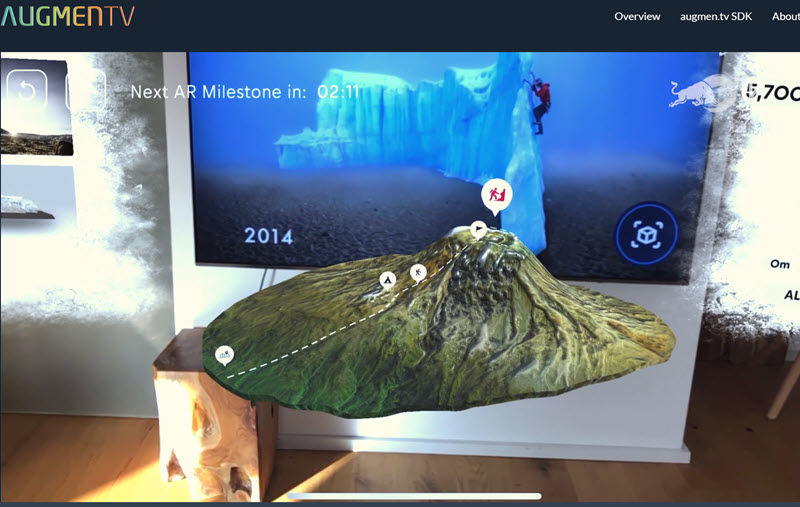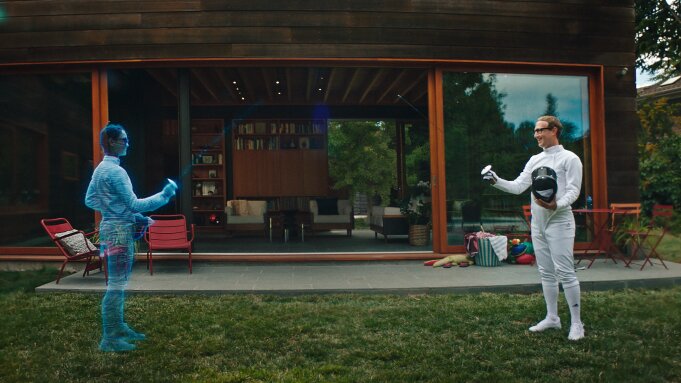I’ve been trying to hold out from reflecting on it, but I don’t think I can really resist commenting on the Mark Zuckerberg concept of the metaverse, at least as I understand it.

(I had planned to call this article ‘Metaverse, shmetaverse’, but I was beaten to it! So I ended up with the horrible pun above).
I have been a fan of technology for a very long time. I was, by some way, the first in my street, my family and my social circle to have a PC at home (an Apple ][). I have been involved in PCs and displays ever since and am often an ‘early adopter’ of technology developments. However, I think I understand the desire for Facebook to get even the deeper immersion and involvement that it hopes from the metaverse.
(As a marketeer, I also understand the desire of Zuckerberg to re-brand Facebook as ‘Meta’. I laughed out loud at the idea on the John Oliver ‘Last Week Tonight’ show that the Catholic Church was going to leave its scandals behind by re-branding as ‘Halo’!).
One reason for Facebook wanting to control the whole universe is that they can then make advertising and ‘product placement’ much less overt and ‘in your face’ than what it currently does online. I’m reminded of a tour I had of the MIT Media Lab some 20+ years ago, where much of the focus was on ‘ambient computing’. Rather than having a ping on your ‘phone to alert you to a message, how about a bit of birdsong? Rather than a raucous alarm, what about the sound (and actuality) of a small trickle of water over rocks in the corner of a room? Rather than an obvious advert in a stream of news or comment, how about a billboard in a Metaverse?
Anyway, I have had the chance, at least until the current plague, to try some of the best immersive headsets available. I’ve seen some really impressive technology, but I have seen nothing that I’d want to wear for any extended period, unless I had to. We’re still a long way from headsets that are light enough for me.
Meko, the publisher of Display Daily, was in the business of market analysis and forecasting when the idea of 3D TV came along and was promoted by display and set makers. We had to think hard about how the technology might be adopted and developed so that we could forecast it. Now, the development of 3D on TV was a nightmare of terrible standards development, awful marketing and suffered from a complete lack of industry coordination. However, if consumers had liked the experience, those issues could have been overcome.
In thinking about TV, it was obvious that casual watchers of TV were not going to get involved in watching 3D if they had to wear glasses. We came up with the idea of ‘event TV viewing’ to distinguish family movie night or special sports or live shows where you ‘get the popcorn in’ and make sure the viewing environment is comfortable and undisturbed for a couple of hours. We thought that in those circumstances, a share of viewers would be interested in putting on the spectacles and taking part. However, there were not enough to allow the market to develop and 3D was consigned to history again (for now!).
Now, the TV glasses were relatively cheap (especially the passive, polarised versions) and spectacle makers even had options to add the 3D effect to regular glasses. They didn’t block out the world, so were more like AR than the Metaverse will need to be. After all, if you want a genuinely alternative world, you have to block out the real one, don’t you? And I think that’s why my ‘gut feeling’ is that the Metaverse will not succeed. I just can’t see that most people will really want to block the real world completely for any extended period of time. Over the years, I have seen lots of companies promoting headsets for viewing movies privately while on aircraft, but I don’t remember seeing one on a passenger. I certainly wouldn’t feel comfortable in a ‘public’ space, being completely ‘cut-off’.
I’m much more comfortable with the idea of ‘mixed reality’, the addition of some extra content along with ‘real life’. One of the most intriguing demoes I have seen was at Technicolor’s R&D centre in Rennes, France. I visited on my way to Laval Virtual, a VR conference that takes place in the Normandy countryside. Cristina Gomila, then CTO but now Managing Director Content Technology & Innovation at Sky, kindly showed me some of the things the R&D group was working on. One that caught my imagination was of the integration of TV with augmented reality. I was looking at a room through a tablet-based AR app and at a certain point the character on a (real) TV screen jumped ‘out of the TV’ and started to interact with the real room it was in. Now, that was an experience that I can imagine wanting to replicate using some good AR glasses. (Plenty to See from Technicolor in Rennes). Digging around for this article, I found that Augmen.tv is doing this kind of thing.
 AugmenTV’s demo of adding AR content to your TV
AugmenTV’s demo of adding AR content to your TV
So, it seems to me, the secret of the whatever will become the ‘Metaverse’ is adding to the real world, rather than replacing it. If Zuckerberg/Facebook/Meta focus purely on replacing the world, I think they are probably doomed to failure. But if they focus on enhancing it…. (BR)
(I had planned to look at what happened to Second Life, which started nearly 20 years ago as an alternative world and developed to around a million users after 10 years, when there was lots of ‘hype’, but it’s pretty moribund now, by all accounts. I didn’t as this article is long enough, already!)


